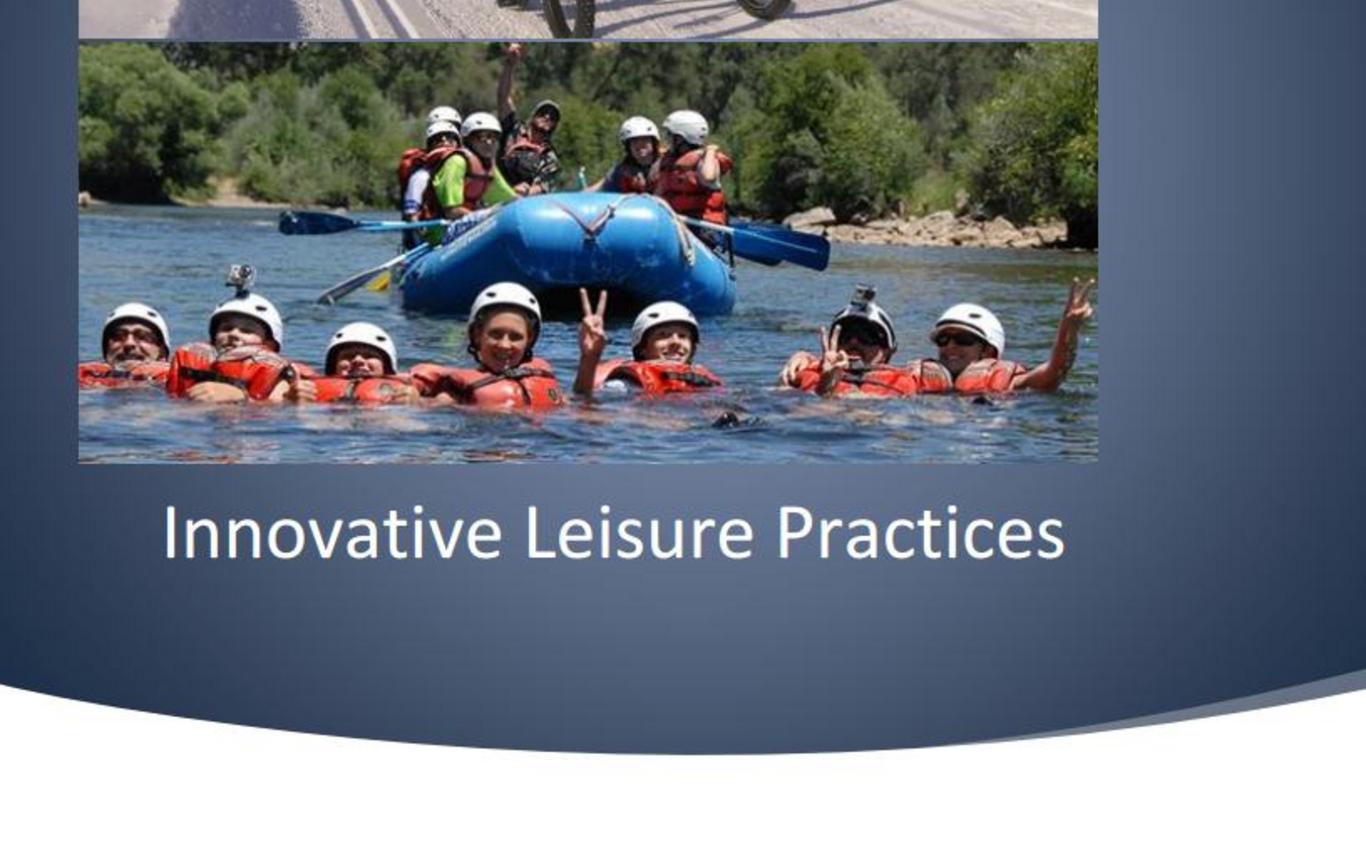Cases as Conduits Between Theory and Practice
Volume 1: December 2015.
The WLCE is pleased to present the first volume of Innovative Leisure Practices. The volume contains 11 case studies profiling innovative practices including:
- Ecotourism, conservation, and sustainability: A case study of the Camrose Purple Martin Festival (Glen T. Hvenegaard and Alanna N. Kaiser)
- Leisure education, poverty and recreation participation: A case study of a community-based education delivery system (Chelsey Hiebert and Jacquelyn Oncescu)
- Experiential and community-engagement learning: Improving the health of Cape Breton Island, one fourth grader at a time (Betina Callary and Patrick Maher)
- Private land, public interest: Securing private land access to encourage amenity based migration for community development (Jeff Wahl and Pete Parker)
- Successful winter tourism destinations: An examination of the Forks National Historic Site, Winnipeg, Manitoba (Amanda Johnson and Christine Van Winkle)
- Becoming Vincent: Using storytelling to link Vincent Van Gogh’s heritage sites physically and digitally (Licia Calvi and Moniek Hover)
- Lessons from the river: Utilizing whitewater critical incident and accident case studies to inform decision-making frameworks in outdoor leadership (Rob Dussler)
- Supporting informed destination development using visitor intelligence (Nicole Vaugeois and Pete Parker)
- Walk the Tuk: An innovative physical activity program for Northwest Territories residents (Lauren A. Brooks-Cleatora, Audrey R. Giles and Sheena Tremblay)
- Robotics programming kids for leisure (Nicole Peel)
- Training tomorrow’s aquatic leaders: A collaborative model in the Regional District of Nanaimo on Vancouver Island (Anne Porteous)
The volume is intended to provide faculty, students, and practitioners with cases where innovative ideas or initiatives have been pursued in different contexts. Each case includes learning outcomes and discussion questions that will aid faculty to use them in the classroom. We encourage you to use the case studies and to share them widely with your network.
